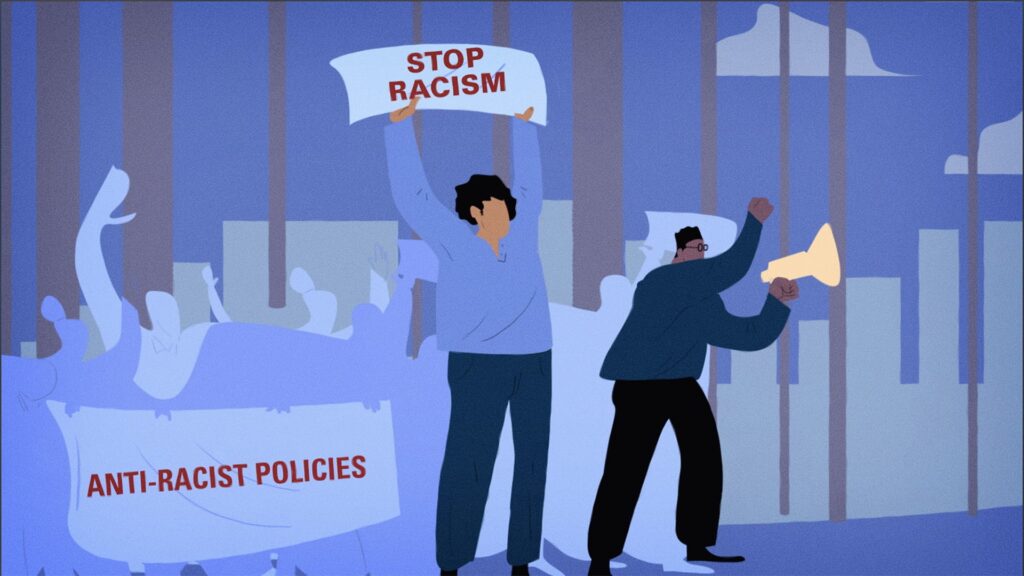Improving On-Campus Racial Climate
When I first started undergrad at George Washington University, I was disturbed to find out that their symbol for the campus community was the Colonial. So, I have spent the…

When I first started undergrad at George Washington University, I was disturbed to find out that their symbol for the campus community was the Colonial. So, I have spent the past two years organizing the Anything But Colonial Coalition, focused on mobilizing the administration and educating the GW community about the racially violent and oppressive reality represented by our school moniker. As a senator in student government, I worked with peers to pass a referendum asking the administration to remove the Colonial and, in March 2019, 54% of voters in the student government election voted to remove and replace it. Through social media, educational events, and partnerships with organizations within and beyond GW campus, the most recent movement to remove the Colonial is solidifying its platform.
Many colleges and universities tout “diversity and inclusion,” but less visible is the actual breaking down of barriers of institutionalized racial inequity imposed on achieving a diverse and inclusive campus. For example, while Syracuse is embroiled in a racist graffiti scandal, institutions such as Georgetown and Princeton Theological Seminary have announced plans to make amends for the ways their colleges specifically invested in and benefited from slavery. As spaces dedicated to education and critical thinking, universities are positioned to lead the conversation on how society can properly address systemic racism and envision an equitable future.
Obviously, removing the Colonial will not “decolonize” GW, but predominantly White institutions across the country need to think more critically about other ways that persisting settler colonial power systems inform the White community members’ experience of campus culture differently than community members of color.
In Facing Up to the Colonial Present of U.S. Higher Education, University of British Columbia Professor of Indigenous Studies and Higher Education Sharon Stein writes: “Although colonial logics remain largely unexamined in the study of higher education, there is not one contemporary campus issue that isn’t significantly shaped by it: sexual assault; persistently Eurocentric curricula; institutional symbols; enrollment and graduation rates of Indigenous students; the normative White male-ness that orients many theories of student development… and, of course, the land itself upon which all of our institutions sit.”
Many of the systemic issues in higher education Stein raises are concerns shared by The Education Trust. Ed Trust has published multiple reports on enrollment and graduation rates of students of color, as well as advocated for institutions of higher education to implement student development support that addresses the specific needs of students from low-income backgrounds and students of color. And research shows that on-campus racism or a hostile racial climate negatively affect student outcomes. Most recently, Ed Trust published Hard Truths: Why Only Race-Conscious Policies Can Fix Racism in Higher Ed, which takes a look at how race-conscious policies need to address campus climate.
Students of color face a unique combination of academic, financial, and social challenges that can make the path to degree completion an uphill one. For example, the American Psychological Association did a study on the psychological and environmental impact of racist mascots, concluding that racist institutional symbols “undermine the educational experience of all community members” and “establish a hostile environment that reaffirms negative stereotypes.” Achieving equitable access to higher education requires consideration of the accessibility of on-campus culture. Diversity and inclusion mean more than just who gets accepted to colleges. The culture of higher education must also adapt to accommodate a diversifying campus in order to remove barriers between students of color and graduation.
We may not be able to decolonize higher education immediately, but we can reflect on our nation’s history of institutionalized settler colonialism and vow to do better. Institutions can start by reallocating resources to support students of color and students from low-income backgrounds, and finding ways to make all students feel welcome on campus. My hope is that my university not just removes the Colonial, but that GW and other institutions challenge systems of inequity so that higher education can become the beacon of empowerment it is meant to be.
Hayley Margolis is an undergraduate at The George Washington University working toward her degree in sociology, and was a fall 2019 communications intern.